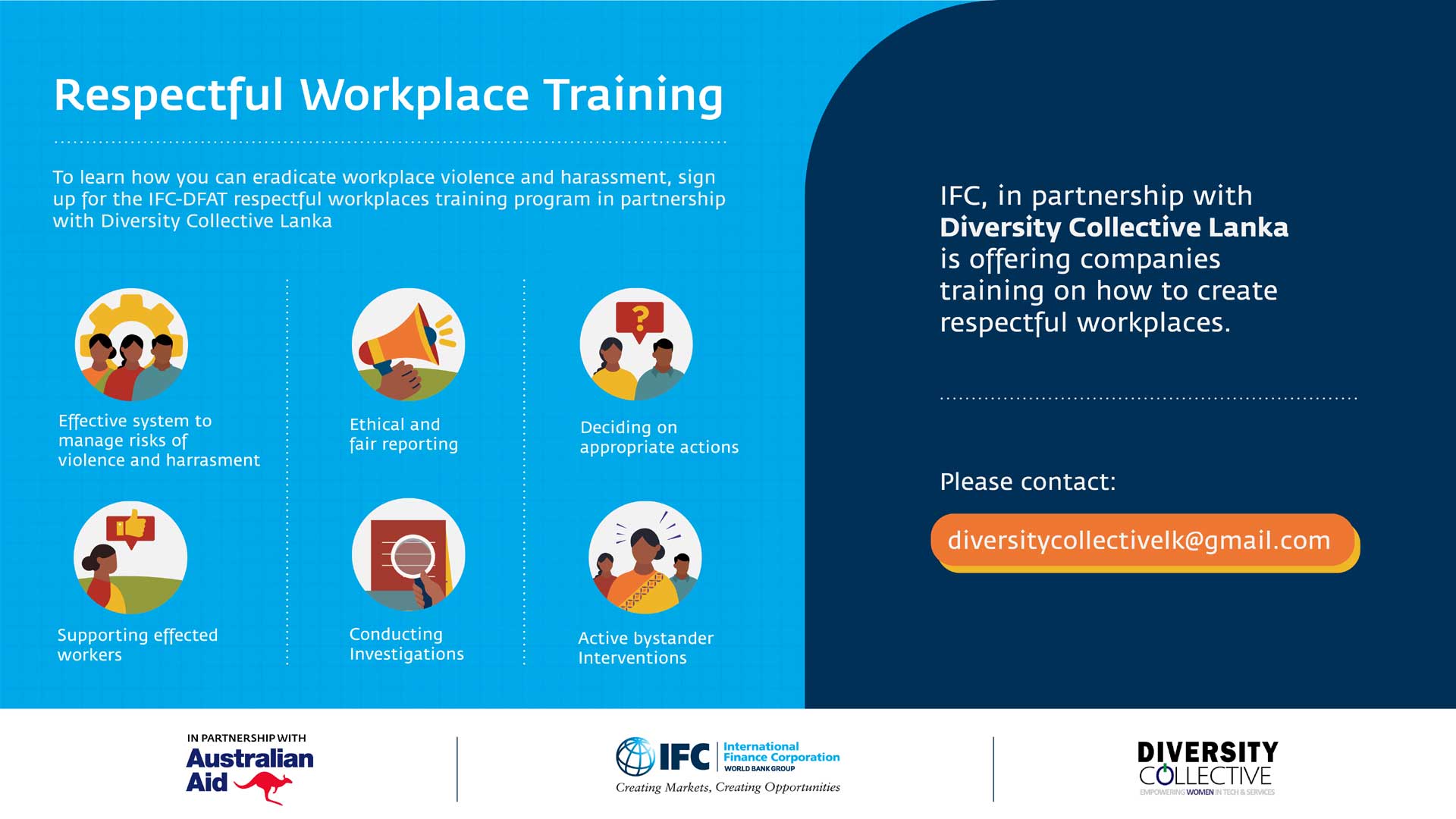THE INTERNATIONAL FINANCE CORPORATION.
Workplace Violence and Harassment Costs Sri Lankan Businesses Millions: IFC Study
Colombo, Sri Lanka, September 15, 2022—The impacts of workplace violence and harassment has led to the loss of six working days per employee every year, costing the nine Sri Lankan companies surveyed at least $1.7 million, according to a new report by IFC, the International Finance Corporation.
The study ‘Business Case for Creating Respectful Workplaces in Sri Lanka’—under the Women in Work partnership between IFC and the Australian Government—highlights that three out of every five people surveyed experienced some form of workplace violence or harassment, while nearly one out of five people felt unsafe at work.
Employees of the nine companies surveyed across genders and age groups reported they were impacted by bullying, sexual harassment, or online violence. Employees with a disability were more likely to experience all forms of workplace violence. The study found that sexual harassment and online violence tended to be underreported forms of workplace violence.
“Workplace violence and harassment is universal, affecting all countries, occupations, and work arrangements. For businesses to successfully deliver their missions and goals, an inclusive workplace culture is a must,” said Victor Antonypillai, Acting Country Manager for IFC in Sri Lanka and Maldives. “IFC report clearly spells out the economic impacts of workplace violence and harassment. Given the present economic context, Sri Lankan businesses cannot ignore them. We hope that the recommendations from the report will promote Sri Lankan companies to create safe and respectful workplaces,”
The report recommends the need for Sri Lankan businesses to adopt policies and implement good practices to proactively address workplace violence and harassment. It further emphasizes the importance of managing risks of online violence—an emerging workplace issue—as well as encouraging staff to use available support in the community. Additionally, it also recommends steps to improve workplace diversity and inclusion.
Over 1,600 employees from nine Sri Lankan companies representing different industries, including manufacturing, banking and finance, fast-moving consumer goods, and tourism, were surveyed for the report. Extensive discussions were also held with business stakeholders, trade unions, employee rights’ activists, and the Sri Lanka police.
“The Women in Work partnership plays a significant role in the Australian government’s commitment towards advancing opportunities for Sri Lankan women and boosting economic growth,” said Paul Stephens, Australian High Commissioner to Sri Lanka. “With this latest study, we want to encourage more Sri Lankan businesses to introduce better workplace practices that support employees affected by violence and harassment. Creating respectful workplaces that are free from all forms of violence and harassment is vital for Sri Lanka to achieve inclusive and sustainable growth.”
The findings have been used to develop tools and resources to help companies prevent and address violence and harassment in workplaces. The report also reiterates the importance of employers’ measures to tackle these issues, including through implementing measures which are consistent with International Labour Organization Convention 190 on Violence and Harassment.
In Sri Lanka, IFC has also developed a policy and toolkit to help the country’s private sector address workplace violence and harassment. For more information on the IFC-DFAT Respectful Workplaces training, delivered in partnership with Diversity Collective Lanka, contact diversitycollectivelk@gmail.com




